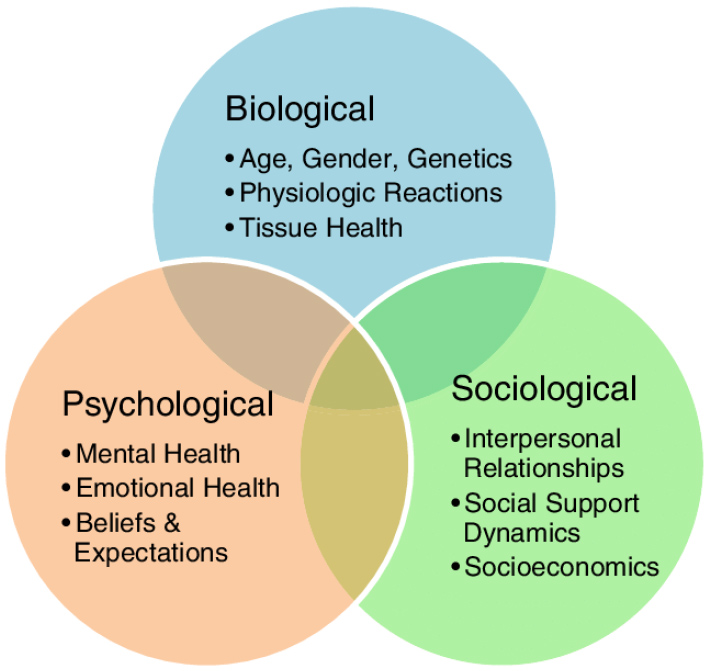The Biopsychosocial Model and Why it’s Important in Our Practice
Our clinic is passionate about our philosophy of looking at individuals or clients holistically following our well-known triangle of health including but not exclusive to physical, chemical and emotional health. Why is this important if you just have tight muscles? Or occasionally get headaches? Or experience arthritis and/or other musculoskeletal conditions? Our practitioners understand that the experience of pain is a complex interaction between all systems of a person’s health. We understand that the pain you feel is important, no matter how much it impacts you.
 Pain is your body’s way of telling you something is not right and needs to be addressed. However, the complexity is that it is not only the physical aspect you need to address, it’s also the chemical and emotional aspects that all contribute. Only addressing the physical pain in isolation will only give short term outcomes as the cause of the pain has not been addressed, which can be a combination of chemical and emotional imbalance.
Pain is your body’s way of telling you something is not right and needs to be addressed. However, the complexity is that it is not only the physical aspect you need to address, it’s also the chemical and emotional aspects that all contribute. Only addressing the physical pain in isolation will only give short term outcomes as the cause of the pain has not been addressed, which can be a combination of chemical and emotional imbalance.
Our practitioners are educated to look at these aspects to give you the best outcomes and looking at your long-term health to strive for wellness. Studies have been shown to prove that using the biopyschosocial model not only works effectively but long-term positive outcomes are significantly better than just the medical model of treating pain.
Related Posts
Combating Vitamin D Deficiencies
1 March 2018
In Australia, you would think with our long, hot summers, active sporting lives and afternoons spent at the beach that we would all have an abundance of Vitamin D. Unfortunately, this is not the case, with vitamin D deficiencies being present in over 30% of Adults.
0 Comments2 Minutes
Do you know the Acronyms PEACE & LOVE for Soft Tissue Injuries?
6 January 2021
After you get soft tissue injuries, commonly you might do RICE (rest, ice, compression and elevation). However, recently new concept has been introduced. It is called PEACE and LOVE!
0 Comments5 Minutes


